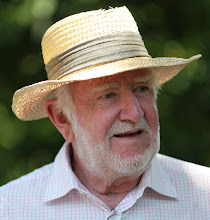Everyone seems to agree that megaprojects should be avoided. They are over time and over budget. On these grounds, we shouldn't undertake them.
This isn’t
new. When I was involved in international construction, my bible was a
1988 study by the Rand Corporation of the problems associated with large
civilian infrastructure projects.
Fifty-two projects of a value of over $500 million (1984$) were studied.
Only four came in on budget, and the average cost growth was 88%. In contrast,
18 projects were completed on time and the average time growth was 17%.
The causes
of the overruns were identified. Using new technology played a
role; lack of familiarity with the construction techniques was another;
institutional problems to do with environmental controls, labour practices and
procurement restraints also loomed large. It was recommended that much more
work went into the head-end design of the project to ensure that these factors
were addressed as far as possible.
Does this
sound familiar? It should. Medupi and Kusile are some of the largest
coal-fired power stations in the world. They are using supercritical
technologies that are novel in South Africa. Eskom used to have the
construction skills; they were lost over a decade ago when Government decided
Eskom should no longer build power stations. The stations have had
desulphurization imposed on them for the most doubtful of environmental
reasons. They have been beset by union problems, which have even involved
the destruction of construction equipment. They have had to maximize local
procurement, and the acquisition of the major component, the boilers, was the
subject of Government involvement. The project starts were rushed
when it was finally realized that we were about to run out of power. All the
factors that are known to lead to cost and time growth were present.
So when people complain about the lack of information
about our nuclear programme, perhaps they need to recognize that time spent in
planning properly is time well spent, and when you are planning, there is very little information available to discuss.
But above all, our nuclear planners need to read the update on the Rand report - Industrial Megaprojects: Concepts, Strategies,and Practices for Success by Edward Merrow, available via Amazon.

